Posted on 7/31/2023
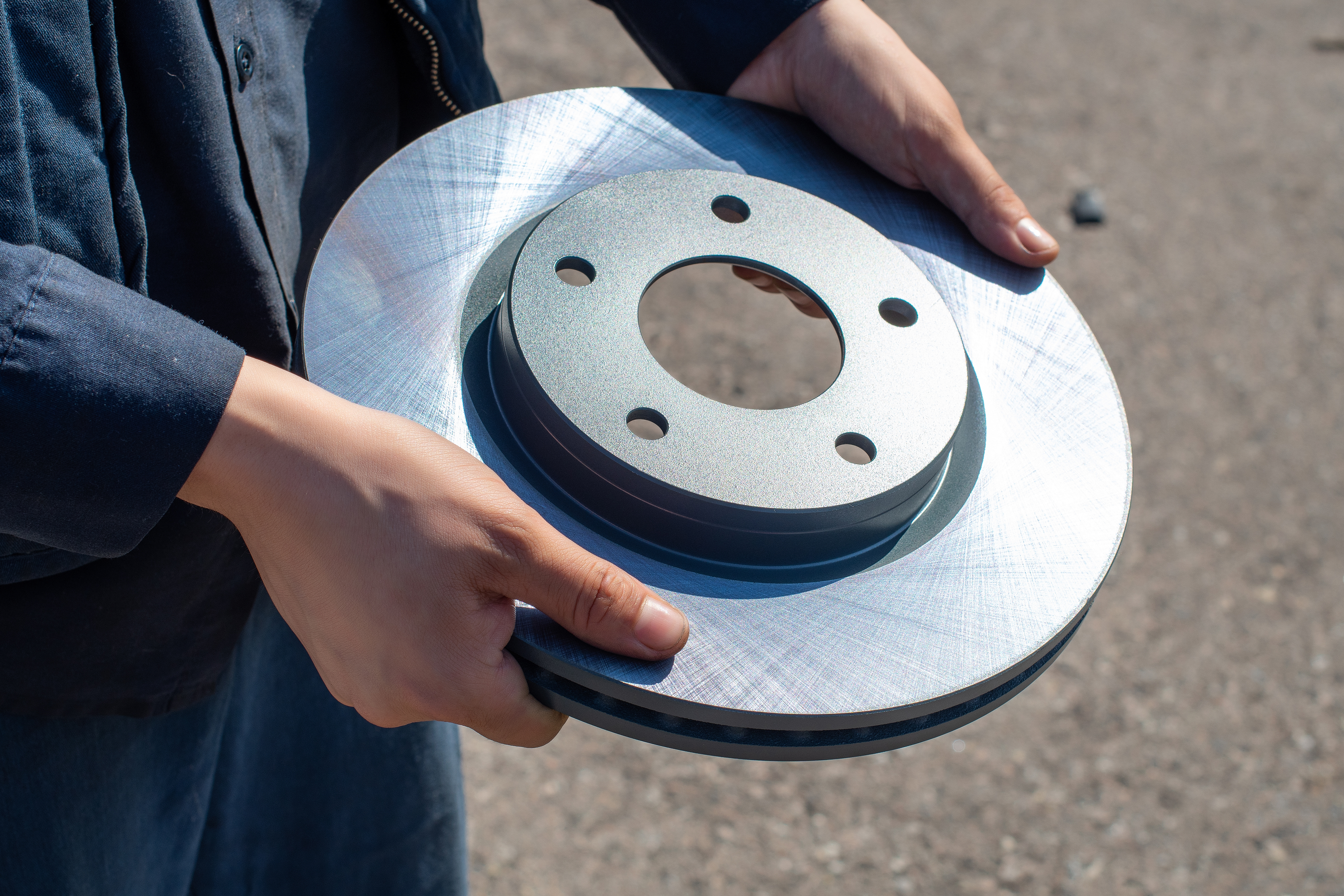
When it comes to road safety, a vehicle's braking system is of utmost importance, especially when traveling at high speeds. Brakes are a critical component that allows drivers to slow down or come to a complete stop when necessary. However, a malfunctioning or poorly maintained braking system can spell disaster, particularly at high speeds. Even the slightest wark in the brake rotors, for example, can result in a fatal crash or at the very least a nerve-racking experience. Reduced Stopping Power One of the most alarming consequences of bad brakes when traveling at high speed is the reduced stopping power. A compromised braking system may have worn-out brake pads, malfunctioning calipers, or air in the brake lines, all of which can significantly hamper the ability to bring the vehicle to a stop quickly and effectively. In emergency situations, this loss of stopping power can lead to collisions or cause the driver to lose control of the vehicle. Brake Fade ... read more
Posted on 6/30/2023
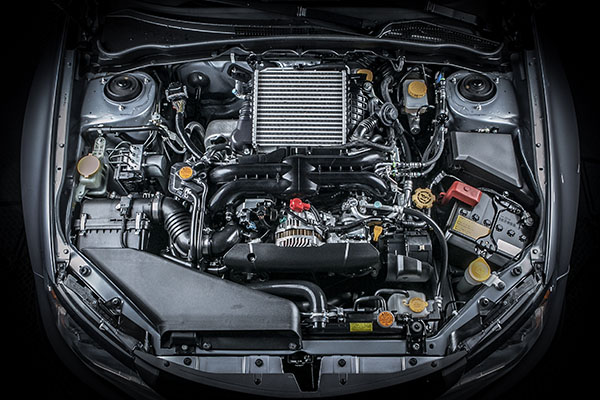
Your vehicle's exhaust system may not be the first thing that comes to mind when you think about performance, but it plays a crucial role in optimizing engine power and efficiency. A well-maintained exhaust system helps expel exhaust gases, reduces engine backpressure, and enhances overall performance. When your exhaust system is compromised or faulty, it can have a significant impact on your vehicle's performance. We explore exactly that - how a bad exhaust system can affect your vehicle's performance and why timely repairs are essential. 1. Reduced Engine Power One of the primary ways a bad exhaust system can impact performance is by reducing engine power. A clogged or damaged exhaust system restricts the flow of exhaust gasses, leading to increased back pressure within the engine. This backpressure hampers the engine's ability to expel exhaust gasses efficiently, resulting in reduced power output. Your vehicle may feel sluggish, struggle to accele ... read more
Posted on 5/31/2023
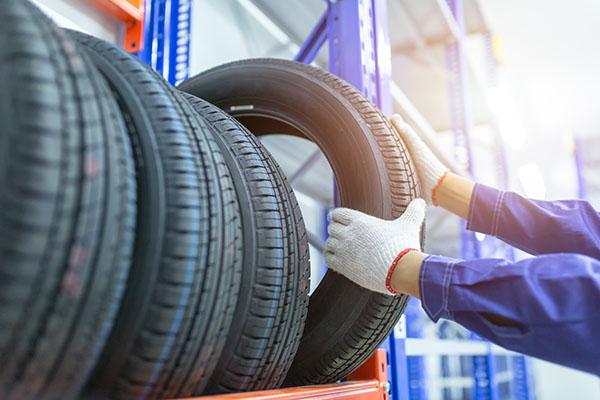
When it comes to choosing tires for your vehicle, size matters. The size of your tires can have a significant impact on various aspects of your driving experience, including handling, performance, and fuel efficiency. While some drivers prefer big tires for their aesthetics or off-road capabilities, others opt for smaller tires for better fuel economy and maneuverability. If you want to learn more about the effect tire size has on a vehicle, make sure to read along. Handling And Stability One of the most noticeable differences between big and small tires is their effect on handling and stability. Big tires typically offer a larger contact area with the road, which can enhance grip and stability. This is particularly beneficial in off-road or adverse weather conditions where increased traction is crucial. On the other hand, small tires provide a more nimble and responsive handling experience, making them suitable for city driving or sporty vehicles that prioritize agi ... read more
Posted on 4/29/2023
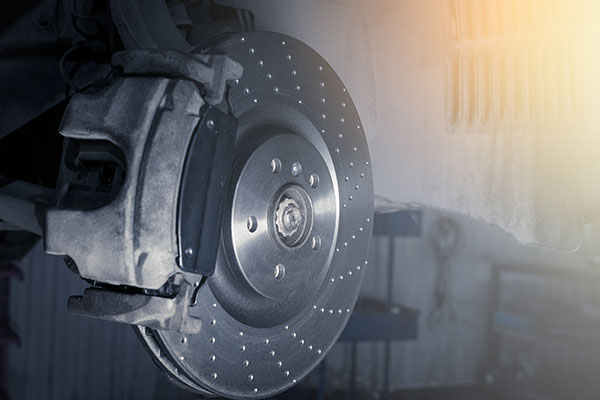
If any part of the braking system is not functioning properly, it can have serious consequences. One of the most critical components is the brake rotor. They are large metal discs that the brake pads clamp down on in order to slow down or stop the car. Over time, brake rotors can become worn or damaged, or if maintained improperly, they can get bent and warped. If you want to avoid problems down the line, you should know a couple of warning signs they give off. Continue reading to find out exactly that. Vibration When Braking If you feel a vibration through the steering wheel or brake pedal when you use the brakes, it could be a sign that your brake rotors are warped or worn out. This can cause you to lose control of the vehicle if ignored, so make sure you check it out ASAP. Squeaking Or Squealing While some noise is normal when the brakes are engaging with the rotor, excessive or persistent squeaking or squealing can be a sign of bad rotors. This ... read more
Posted on 3/29/2023

Summer is only a few months away, which means it's about time for road trips! Whether you're going on a long-awaited family vacation or just taking a weekend getaway with your significant other, safety should be your top priority. Keep these safe driving tips in mind for your next road trip. Get Your Car Checked Before embarking on a long trip, it's crucial to ensure that your vehicle is in good condition. Schedule a maintenance checkup with your auto repair shop to inspect your brakes, tires, fluids, and all other important components. It's better to take care of any necessary repairs or maintenance items before your trip than to deal with them on the road. Plan Your Route Plan your route in advance to avoid unexpected detours and heavy traffic. Consider using GPS or a navigation app to help you navigate unfamiliar roads. It's also a good idea to learn about the traffic laws and regulations in the states you'll be driving through. Take Breaks Driving for ... read more
Posted on 2/28/2023
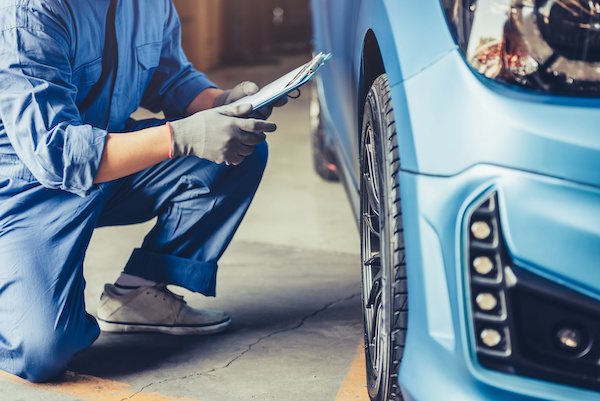
To better understand the benefits of a pre-purchase inspection (PPI), you need to know what they are. PPI is offered by shops to clients that might want to purchase a vehicle but aren't sure about its condition. A mechanic comes and thoroughly inspects all important parts/systems, making sure you won't be ripped off or fooled. The checklist consists of the following: Brake system Steering Transmission Wheels and Tires Drivetrain Suspension Electronics Undercarriage Oil levels Lights Interior These are the most important things to look at when buying a car. But people commonly forget about them, therefore needing help from a mechanic. After all, a skilled and professional hand is a better option than just guessing. You get countless benefits from a PPI, and we will list some of them below. Lets You Know The Worth Of The Vehicle During a PPI, mechanics inform you of the actual state and condition of the vehicle. You get a biased opinion on the car and whether ... read more
Posted on 1/30/2023
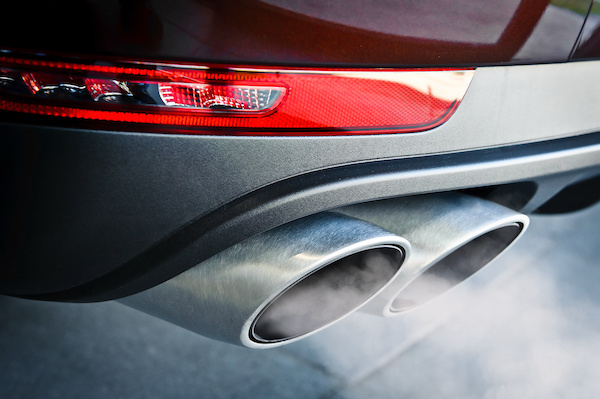
Mufflers play an important role in the exhaust system of your vehicle, helping to limit both noise and pollution. But when they become damaged or worn out, it can be tough to decide whether to repair or replace them. In this blog, we'll take a look at some of the factors to consider when making this decision. First, it's important to understand the symptoms of a damaged muffler. Some common signs include: A loud or rumbling noise coming from the exhaust Reduced fuel efficiency Abnormal amount of exhaust emissions If you notice any of these red flags, it's important to have your muffler inspected as soon as possible. One of the main factors to consider when deciding whether to repair or replace your muffler is the extent of the damage. If the muffler is only slightly damaged, a repair may be all that is needed. This could include patching a small hole or replacing a damaged component. However, if the muffler is heavily damaged or corroded, a replacement will likely be ... read more
Posted on 12/23/2022
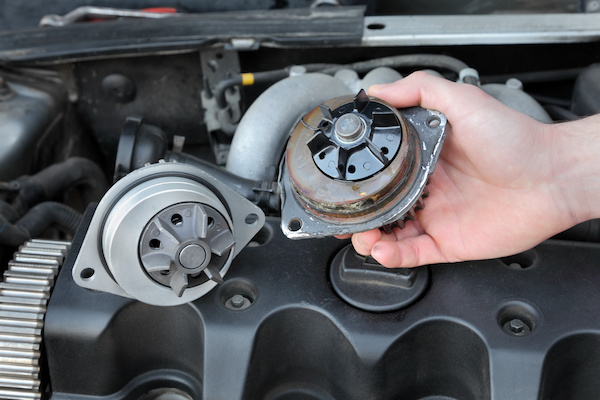
Your car's water pump is an essential part of the engine. It draws in coolant and sends it to the radiator, where it must be boiled off as quickly as possible to prevent your vehicle from overheating. If you suspect a water pump problem, take your car to a mechanic immediately. Symptoms of a Failing Water Pump Leaky Coolant There are several gaskets on the water pump, and these might become harmed or worn out over time. Under the car in this scenario, coolant might seep out and drip. Check the water pump if you see coolant, often a green or red liquid, under the center front of your car. Heating Of the Engine A water pump's primary function throughout its lifespan is running coolant through an engine to cool it down. The engine may overheat if the water pump cannot do this. Engine overheating should not be resolved, regardless of its origin. Burnt pistons, broken cylinder heads, and damaged head gaskets are just a few issues that can be brought on by heat. Harmonic, High-P ... read more
Posted on 11/28/2022
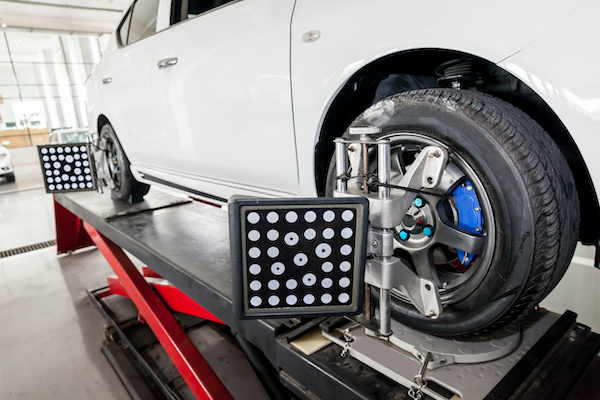
A wheel alignment service is a procedure that involves adjusting the outward or inward tilt of your vehicle’s tires to reduce tire wear and ensure your car can drive straight. Wheel alignments should always be performed by professional auto technicians with the right skills and equipment. If you need help improving your vehicle’s handling, read on to learn more about wheel alignments. On a day-to-day basis, it can be easy to overlook the warning signs of misaligned wheels. When your wheels aren’t pointed in the right direction, you put your and many others’ lives at risk. Not only will your car not be able to drive in the direction you want it to, but your steering wheel will be difficult to manage, and tires will wear improperly. How Can I Tell If My Vehicle’s Wheels Are Misaligned? Uneven tire wear Off-centered steering wheel Steering wheel vibrations Constant pulling or drifting left or right How Are Wheel Alignments Performed? At our ... read more
Posted on 10/31/2022
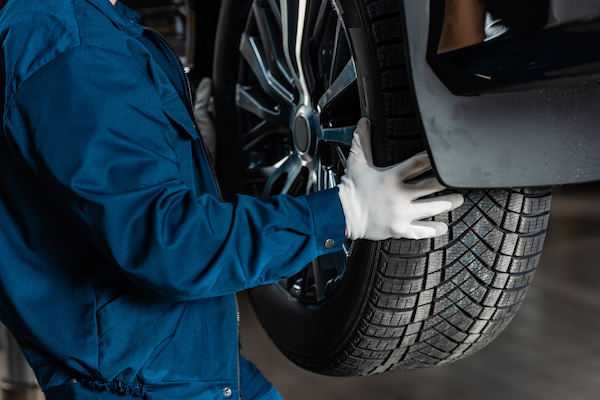
The treads on your tires can reveal a lot about how your tires are holding up, and whether or not they, or another part of your vehicle needs servicing. Inspecting your tires once a week for irregular wear patterns can help you address any issues with your vehicle before they get much worse. 5 Tire Tread Patterns You Should Not Ignore Here are some of the most common tire wear patterns you should never ignore. 1. ''Toe" Wear" The toe of the tire is a mark on it's bottom that relays any tilting of the vehicle. The size and the direction it is pointed is used to compare the skew of the tire to the centerline of the vehicle. Wear and tear on the toe area of the tire to either the left or right means that your steering system needs realignment. If you have visible toe wear, and the car leans a bit to the side while in motion, you need to take it in to a shop. 2. Edge Wear A sure sign that you are driving around in a car with deflated tires is wear on the edges ... read more